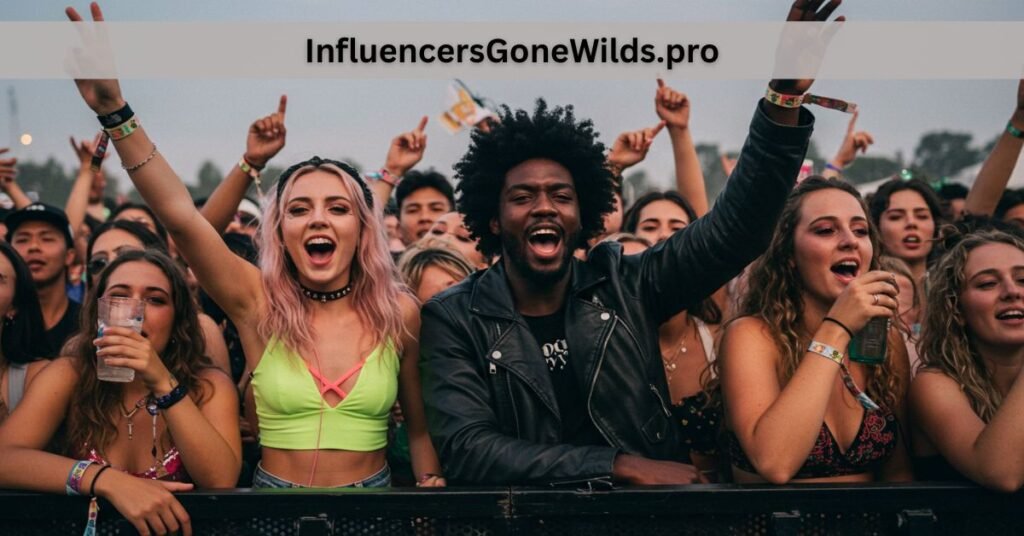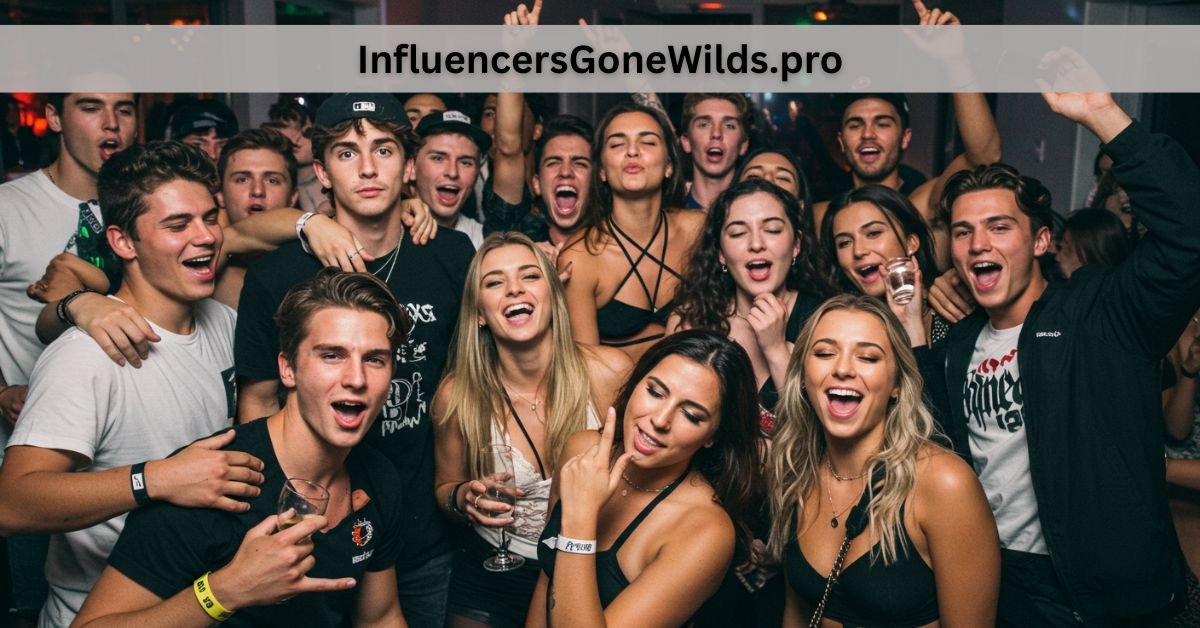The world of social media has created a new breed of celebrity — the influencer. Unlike traditional stars who rose to fame through television, sports, or film, influencers often emerge from relatable beginnings, sharing content on platforms like Instagram, TikTok, YouTube, or X (formerly Twitter). But with fame comes scrutiny, and not every influencer handles the spotlight gracefully. The phrase “Influencers Gone Wild” has become a popular way to describe moments when influencers lose control, spark scandals, or cross boundaries in their pursuit of attention.
This article takes a deep look at what happens when influencers go too far, why controversies are almost inevitable in the influencer space, and how these moments reflect broader changes in digital culture.
The Rise of Influencer Culture
From Hobbyists to Global Icons
Ten years ago, posting selfies or sharing daily routines online was just a hobby. Today, it is a multimillion-dollar industry. Influencers represent brands, create content for millions of fans, and even shape public opinion. Their power comes from their perceived authenticity — followers trust them because they seem more relatable than traditional celebrities.
However, this close connection with audiences can blur the lines between personal and professional lives, making missteps more visible.
Why People Follow Influencers
Audiences are drawn to influencers for several reasons:
- Authenticity – Many influencers feel like “friends” rather than distant celebrities.
- Lifestyle Inspiration – From fashion to travel, influencers set trends that followers aspire to.
- Entertainment Value – Humor, challenges, or even drama often keep audiences engaged.
- Community – Followers often bond with each other around shared admiration for an influencer.
But with this level of attention, even small mistakes can spiral into viral controversies.
What “Gone Wild” Really Means in Influencer Culture
The phrase doesn’t always mean chaos in the literal sense. Instead, it captures moments when influencers break expectations or behave in ways that shock, disappoint, or amuse their audiences. This can range from lighthearted stunts to serious scandals.
Some of the most common ways influencers go wild include:
- Posting offensive or inappropriate content.
- Exaggerating or faking lifestyles for attention.
- Getting caught in lies about sponsorships or fake giveaways.
- Public meltdowns during livestreams.
- Legal or ethical controversies.
Famous Cases of Influencers Gone Wild

While every year brings new headlines, a few incidents stand out as cultural turning points.
The Fyre Festival Fiasco
One of the earliest large-scale influencer scandals came from the infamous Fyre Festival in 2017. Promoted by top influencers and models, it promised luxury and exclusivity. Instead, attendees found disaster-level conditions. Influencers faced criticism for misleading promotions, sparking discussions about transparency and accountability in influencer marketing.
YouTube Apology Culture
Several YouTubers have faced backlash for offensive past videos, insensitive comments, or staged pranks. Each scandal often leads to an emotional apology video, a phenomenon so common that “apology videos” have become a recognizable genre on the platform.
TikTok’s Wild Side
TikTok influencers often face heat for dangerous challenges, unverified health advice, or oversharing personal drama. The fast-paced, viral nature of the app makes controversies spread even faster.
Why Scandals Keep Happening?
The Pressure to Stay Relevant
Influencers rely on constant attention to remain successful. This pressure often leads them to push boundaries, experiment with outrageous content, or stage drama.
Monetization and Sponsorship Deals
When an influencer’s income depends on views, clicks, and brand deals, the temptation to exaggerate or mislead audiences can be strong. Transparency issues arise when sponsorships are not disclosed, or products are promoted without honest reviews.
The Parasocial Relationship Trap
Followers often feel emotionally attached to influencers, creating parasocial relationships. When influencers behave badly, it feels like a personal betrayal to fans, intensifying the backlash.
Positive Outcomes of Controversies
Interestingly, not all “gone wild” moments destroy careers. Some influencers actually gain more visibility and followers after scandals. Others use controversies as opportunities to rebrand.
For example:
- Reinvention – Influencers may use criticism to mature and shift their content style.
- Cultural Conversations – Scandals often spark wider debates about mental health, ethics, or online responsibility.
- Transparency Improvements – Industry standards have evolved to require clear labeling of paid promotions.
How Influencers Can Avoid Going Too Far?
While controversy may be inevitable, there are strategies influencers can adopt to maintain credibility:
- Authenticity First – Stay true to your message rather than chasing trends.
- Transparency with Followers – Disclose sponsorships and partnerships honestly.
- Setting Boundaries – Keep some parts of life private to prevent oversharing.
- Crisis Management Plans – Prepare strategies for handling backlash before it happens.
- Continuous Learning – Stay updated on social issues to avoid unintentionally offensive content.
How Followers Can Protect Themselves?
It’s easy to get caught up in the drama of influencer scandals, but followers should also practice mindfulness:
- Don’t take everything at face value; influencers often curate their lives.
- Be cautious with financial investments, such as paid subscriptions or giveaways.
- Support influencers who show accountability and genuine growth.
- Remember that following is a choice — it’s okay to unfollow if someone no longer aligns with your values.
The Future of Influencers in a “Gone Wild” Era
Influencer culture is still evolving. Audiences are becoming more aware of staged content and false appearances. At the same time, platforms are introducing stricter rules around content moderation, sponsorship disclosures, and user protection.
We may see a shift toward micro-influencers who have smaller but more loyal followings. These creators often avoid the extreme scandals of bigger names because their audiences value genuine community over flashy content.
The wild moments aren’t going away anytime soon, but the way they are perceived will continue to change as both audiences and influencers mature.
Conclusion
The phrase “Influencers Gone Wild” captures both the chaotic energy and fragile reality of internet fame. While scandals may entertain or shock audiences, they also highlight the pressures and pitfalls of influencer culture. Whether these controversies destroy careers or spark meaningful change depends on how influencers and audiences respond. One thing is certain: in the fast-moving world of social media, wild moments are here to stay.
FAQs About Influencers Gone Wild
1. What does “Influencers Gone Wild” mean?
It refers to situations where influencers behave unpredictably, recklessly, or controversially, often leading to viral scandals or backlash.
2. Why do influencers often face scandals?
Because their careers depend on constant engagement, many influencers push boundaries to stay relevant. Mistakes, oversharing, or dishonesty can quickly spiral into controversy.
3. Do scandals always ruin an influencer’s career?
Not always. Some influencers lose credibility, while others manage to turn controversies into opportunities for reinvention or even increased visibility.
4. How can influencers prevent going too far?
By staying authentic, being transparent about sponsorships, setting personal boundaries, and educating themselves about social responsibility.
5. Should followers trust influencers?
Followers can enjoy influencer content but should remain cautious. It’s wise to fact-check advice, avoid impulsive purchases, and support creators who demonstrate honesty.
6. What impact do these controversies have on the industry?
They push platforms, brands, and influencers to create clearer guidelines on transparency and ethics, ultimately shaping a more responsible influencer ecosystem.
